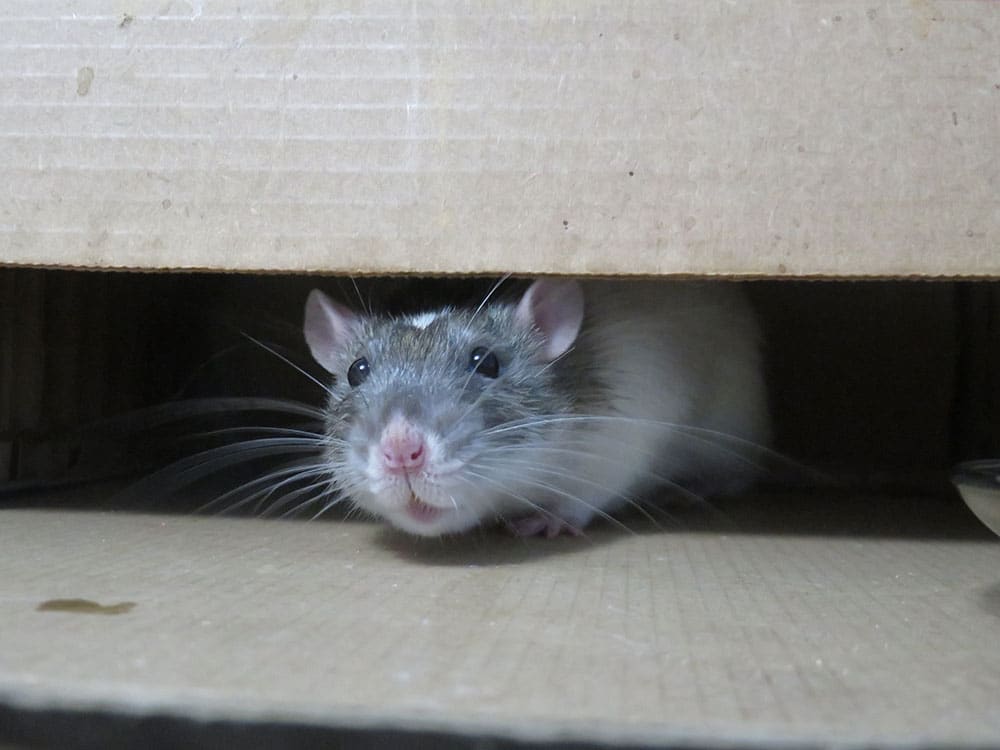Rats cause structural damage to buildings by burrowing and gnawing. Rats also may gnaw on electrical wires or water pipes, either in structures or below ground. They damage structures further by gnawing openings through doors, window sills, walls, ceilings, and floors. Considerable damage to insulated structures can occur as a result of rat burrowing and nesting in walls and attics.
- Rat Size
The Norway rat is a stocky burrowing rodent. Also called the brown rat, house rat, barn rat, sewer rat, gray rat, or wharf rat, it is a slightly larger animal than the roof rat. Adult Norway rats weigh an average of 1 pound (454 g). Their fur is coarse and usually brownish or reddish gray above and whitish gray on the belly. Blackish individuals occur in some locations.
- Burrow
Norway rats live in close association with people. In urban or suburban areas they live in and around residences, in cellars, warehouses, stores, slaughterhouses, docks, and in sewers. On farms, they may inhabit barns, granaries, livestock buildings, silos, and kennels. They may burrow to make nests under buildings and other structures, beneath concrete slabs, along stream banks, around ponds, in garbage dumps, and at other locations where suitable food, water, and shelter are present. Although they can climb, Norway rats tend to inhabit the lower floors of multistory buildings.

- Food
Norway rats will eat nearly any type of food. When given a choice, they select a nutritionally balanced diet, choosing fresh, wholesome items over stale or contaminated foods. They prefer cereal grains, meats and fish, nuts, and some types of fruit. Rats require 1/2 to 1 ounce (15 to 30 ml) of water daily when feeding on dry foods but need less when moist foods are available. Food items in household garbage offer a fairly balanced diet and also satisfy their moisture needs.
Norway rats consume and contaminate foodstuffs and animal feed. They may damage crops in fields prior to and during harvest and during processing and storage. Rats also damage containers and packaging materials in which foods and feed are stored.
See signs of rat infestation in your home or business, contact Prompt Action Bat & Pest Control today.







